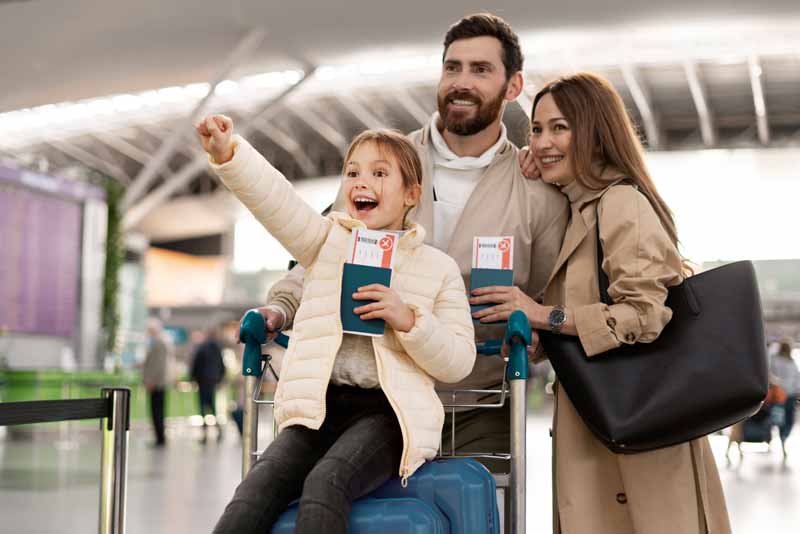The Government of Canada announced another relaxation in Covid-19 travel measures. Fully vaccinated travellers will not be required to provide a pre-entry Covid-19 test result to enter Canada from April 1, 2022. The new policy will be applicable on travellers arriving at all ports of entry, and Travellers arriving in the country before April 1, 2022, still need to have a valid pre-entry test.
However, random on-arrival will still be in effect with the aim to identify and tract Covid-19 variants. Fully vaccinated travellers arriving in Canada from any country may be selected for mandatory random testing at the borders as per the earlier travel measures. Chosen travellers need to take the Covid-19 molecular test but do not have to quarantine while waiting for the results.
On February 28, Canada relaxed its testing criteria to some extent. All travellers to Canada are still required to submit either a pre-arrival antigen test or a molecular test. However, this pre-entry testing requirement will be lifted for fully vaccinated travellers from April 1. Unvaccinated children under the age of 12 entering Canada do not require to be quarantined for two weeks as of February 28.
Partial and Unvaccinated travellers
Travel measures and pre-entry testing requirements remain the same for partially or unvaccinated travellers who are allowed to travel to Canada based on some exemption. These include citizens of Ukraine, temporary foreign workers coming to work in farming or food processing, people who routinely travel across the border for work, etc. All travellers aged 5 years or above who do not qualify as fully vaccinated and do not come under any exception mentioned in the government’s list must provide proof of an accepted pre-entry COVID-19 test result. They are also required to test on arrival and then again on Day 8 while being in quarantine for 14 days.
Such partial or unvaccinated travellers can provide a valid negative antigen test taken within 24 hours of flight departure or arrival at the land border or marine port of entry. A positive antigen test will not be accepted. The antigen test must be taken outside Canada and administered or observed by an authorized lab or testing provider.
Alternatively, travellers can also provide a molecular test taken within 72 hours of arriving at the Canadian borders. A previous positive molecular test will also be accepted if taken at least 10 calendar days and no more than 180 calendar days before scheduled flight departure time or their arrival at the borders.
ArriveCAN
ArriveCAN requirements will also remain the same as per the current travel measures. All travellers must upload their mandatory information in the ArriveCAN free mobile app or website within 72 hours before arriving at the borders. Travellers without completing their ArriveCAN submission may be subjected to a pre-arrival test and a 14-day quarantine even if they are fully vaccinated.
In Canada, travel industry representatives have fought against the testing criteria of the government, claiming that their high cost will deter travellers. According to the Canadian Travel and Tourism Roundtable, the testing requirement under Canada’s travel measures is a “non-science-based” barrier. A Covid-19 test can cost up to $200 CAD for a molecular test and less than $100 CAD for an antigen test. According to the group, some countries, such as the United Kingdom, Denmark, Switzerland, and Ireland, have already lifted their testing requirements.
Who are fully vaccinated?
Travellers need to have received the full recommended dose of an approved vaccination to be considered fully vaccinated by the Canadian government. A booster shot is not required at the moment, and the last dose must be taken within 14 days of arriving at Canadian borders. All travellers must also submit their proof of vaccination on ArriveCAN app or website beforehand for a smooth procedure while entering the country.
Provincial requirements
Before proceeding to the border, travellers must check that they meet all entry requirements mandated in Canada’s travel measures. Aside from border restrictions, some provinces and territories may have their own set of travel restrictions and requirements. To enter Canada, all travellers must meet both the federal and provincial entry requirements.
The government acknowledges that the country’s ability to move to a new phase is due to the efforts of millions of Canadians who obeyed the various public health measures, such as getting themselves and their family vaccinated. It believes that people should continue to do their share to stop Covid-19 from spreading by being vaccinated and boosted, using masks when necessary, self-isolating if they have symptoms, and self-testing if required.


